- Home
- Lisa Kleypas
Christmas Eve at Friday Harbor Page 3
Christmas Eve at Friday Harbor Read online
Page 3
“She’s fine here,” Maggie said. “I’ll look out for her.”
Nolan’s gaze slid to her briefly. “Thanks,” he said, and left the shop.
Maggie let out a pent-up breath, feeling a little like she had just gotten off an amusement-park ride, her insides settling after having been rearranged.
Leaning against the counter, Maggie regarded Holly thoughtfully. The child’s face was guarded, her eyes bright but opaque, like sea glass. Maggie tried to remember more about when her nephew, Aidan, hadn’t been able to speak at school. Selective mutism, it was called. People often thought such behavior was willful or deliberate, but it wasn’t. Aidan had gotten better in time, eventually responding to the patient overtures of his family and teacher.
“Do you know who you remind me of?” Maggie asked in a conversational tone. “The little mermaid. You’ve seen that movie, right?” Turning, she rummaged beneath the counter and found a large pink conch shell, part of a beach-themed display they had planned to put in the window soon. “I have something for you. A present.” Coming around the counter, she held it up for Holly’s inspection. “I know, it looks pretty ordinary. But there’s something special about this shell. You can hear the ocean if you put it against your ear.” She handed the conch over, and Holly held it carefully up to her ear. “Can you hear it?”
The child responded with a matter-of-fact shrug. Clearly the ocean-in-the-seashell trick was old news.
“Do you know why you can hear it?” Maggie asked.
Holly shook her head, looking intrigued.
“Some people—very practical, scientific people—say that the shell captures outside noise and lets it resonate inside the shell. However, other people”—Maggie gestured to herself and gave the girl a significant glance—“believe there’s a little magic in it.”
After considering this, Holly returned her meaningful glance and touched her own small chest.
Maggie smiled. “I have an idea. Why don’t you take this shell home with you and practice making noise in it? You could sing or hum into it like this….” She sent a wordless tune into the empty shell. “And someday maybe it could help your voice to come back. Just like the little mermaid.”
Holly reached out and took the shell with both hands.
At that moment, the door opened, and Mark Nolan walked back into the store. His gaze went to Holly, who was staring intently into the aperture of the conch. He froze as he heard the girl begin to croon a few soft notes into the shell. His face changed. And in that one unguarded moment, Maggie saw a flashing succession of emotions: concern, fear, hope.
“What are you doing, Holls?” he asked casually, approaching them.
The girl paused and showed him the conch.
“It’s a magic shell,” Maggie said. “I told Holly she could take it home with her.”
Nolan’s dark brows lowered, and a shadow of annoyance crossed his face. “It’s a nice conch,” he told his niece. “But there’s nothing magical about it.”
“Oh, yes, there is,” Maggie said. “Sometimes the most ordinary-looking things have magic in them…you just have to look hard enough.”
A humorless smile touched Nolan’s lips. “Right,” he said darkly. “Thanks.”
Too late, Maggie understood that he was one of those people who didn’t encourage flights of fancy in their children. Heaven knew he was not alone. More than a few parents believed that children were better off with a strict diet of reality, rather than being confused by stories of made-up creatures, or talking animals, or Santa Claus. In Maggie’s opinion, though, fantasy allowed children to play with ideas, to find comfort and inspiration. However, it wasn’t up to her to decide such things for someone else’s child.
Abashed, Maggie retreated behind the counter and busied herself with ringing up the items in the basket: the fairy book, a puzzle, a jump rope with wooden handles, and a fairy ornament with iridescent wings.
Holly wandered away from the counter, humming softly into the conch. Nolan stared after his niece, then turned his attention back to Maggie. He spoke in an edgy undertone. “No offense, but—”
Which was the way people always started a sentence that ended up being offensive.
“—I prefer to be honest with kids, Miss…”
“Mrs.,” Maggie said. “Conroy. And I prefer to be honest, too.”
“Then why did you tell her that’s a magic shell? Or that a fairy lives in that house on the wall?”
Maggie frowned as she tore the receipt from the register. “Imagination. Play. You don’t know much about children, do you?”
It was instantly apparent that the shot had hit its target far harder than she had intended. Nolan’s expression didn’t change, but she saw a band of color burnish the crests of his cheeks and the bridge of his nose. “I became Holly’s guardian about six months ago. I’m still learning. But one of my rules is not to let her believe in stuff that’s not real.”
“I’m sorry,” she said sincerely. “I didn’t mean to offend you. But just because you can’t see something doesn’t mean it’s not real.” She gave him an apologetic smile. “Do you want your receipt with you, or in the bag?”
Those mesmerizing eyes stared right into hers with an intensity that caused her brain to do an abrupt control-alt-delete. “In the bag.” They were close enough that his scent reached her, an amazingly good smell of old-fashioned white soap, and sea salt, and a hint of coffee. Slowly he extended a hand across the counter. “Mark Nolan.”
His grip was strong, his hand warm and work-roughened. It awakened a subtle pang of awareness that started deep in the pit of her stomach.
To Maggie’s relief, the shop door jingled as someone else came in. Instantly she tugged her hand free. “Hello,” she called out with artificial cheer. “Welcome to the Magic Mirror.”
Nolan—Mark—was still staring at her. “Where are you from?”
“Bellingham.”
“Why’d you move to Friday Harbor?”
“It seemed like the right place for the shop.” Maggie gave him a little shrug, to indicate that there was too much to explain. That didn’t appear to dissuade him. The questions were gentle but persistent, nipping at the heels of her every answer.
“You got family here?”
“No.”
“Then you must have followed a guy.”
“No, I…why do you say that?”
“When a woman like you moves here, there’s usually a guy.”
She shook her head. “I’m a widow.”
“I’m sorry.” His steady gaze kindled a hot, shaky feeling inside, not entirely unpleasant. “How long ago?”
“Almost two years. I can’t…I don’t talk about it.”
“An accident?”
“Cancer.” She was so aware of him, the healthy masculine vitality of him, that she was covered with a full-bodied flush. It had been a long time since she’d felt this kind of attraction, extravagant in its intensity, and she didn’t know what to do with it. “I have friends who live at Smugglers Cove, on the west side—”
“I know where it is.”
“Oh. Of course, you grew up here. Well, my friend Ellen knew I wanted to make a new start somewhere, after my husband…after…”
“Ellen Scolari? Married to Brad?”
Maggie’s brows lifted in surprise. “You know them?”
“There aren’t many people on this island I don’t know.” His eyes narrowed speculatively. “They haven’t mentioned you. How long—”
A little whisper interrupted him.
“Uncle Mark.”
“Just a minute, Holls, I’m—” Mark broke off and went very still. He did a near-comical double take, his stunned gaze falling to the child beside him. “Holly?” He sounded breathless.
The girl smiled up at him uncertainly. Standing on her toes, she reached over the counter to give the shell to Maggie. And she added in another hesitant but perfectly audible whisper, “Her name is Clover.”
“The fairy?” M
aggie asked in a hushed voice, while the hair on the back of her neck lifted. Holly nodded. Swallowing hard, Maggie managed to say, “Thank you for telling me, Holly.”
Three
In the shock of hearing Holly’s whisper, Mark forgot everything: their surroundings, the woman behind the counter. Six months they’d been trying to get Holly to say something, anything. Why it had happened here and now was something he’d parse out later with Sam. For now, he had to keep it together, to not overwhelm Holly with his reaction. It was just…Christ.
Mark couldn’t stop himself from lowering to one knee and pulling Holly against him. Her fine-boned arms went around his neck. He heard himself saying her name in a shattered murmur. His eyes were stinging, and he was appalled to realize that he was on the verge of losing it.
But he couldn’t control the tremors of relief at the evidence that Holly was apparently ready to start talking again. Maybe now he could let himself believe that she was going to be okay.
Feeling Holly wriggle to free herself from his tight grasp, Mark pressed a fervent kiss against her cheek and forced himself to let go. He stood, evaluated his emotion-clenched throat, and realized there was a good chance his voice would crack if he tried to say anything. He swallowed hard and blindly studied the Pink Floyd lyrics on the wall—not reading them, just focusing on the color of the paint, the texturing on the Sheetrock beneath.
Finally he slid a guarded look to the red-haired woman behind the counter—Maggie—who was holding the bag of stuff he’d just bought. He saw that she comprehended the significance of what had just happened.
He didn’t know what to make of her. She was all of five foot two, with wild red curls that squiggled and zigzagged like hieroglyphs. Her figure was slender, dressed neatly in a white tee and jeans.
The face, half-hidden by those rampant curls, was pretty and fine-featured, her skin pale except for the fever-colored flush on her cheeks. And her eyes—dark and heavy-lashed, the color of bittersweet chocolate. She reminded him a little of the girls he used to know in college, the funny, interesting ones he would stay up half the night and talk with, but never date. He had dated the trophies instead, the ones that other guys had envied him for. It was only later that he had wondered what he might have missed out on.
“Can I talk to you sometime?” he asked, sounding more abrupt than he’d intended.
“I’m always here,” Maggie said lightly. “Stop by whenever.” She nudged the shell across the counter. “Why don’t you take this home with you, Holly? Just in case you need it again.”
“Hey, you guys!” A smooth, sunny voice came from behind Mark.
It was Shelby Daniels, Mark’s girlfriend from Seattle. She was smart, beautiful, and one of the nicest people Mark had ever known. You could take Shelby anywhere, in any kind of company, and she would find a way to fit in.
Shelby approached them, tucking a swing of gleaming blond hair behind one ear. She was dressed in khaki capris, a neat white shirt, and ballet flats, with no adornment other than single pearl earrings. “Sorry I was a few minutes late, you two. I had to try on something in the shop a couple doors down, but it didn’t work out. I see you got some things, Holly.”
The girl nodded, silent as usual.
With a mixture of worry and wry amusement, Mark realized Holly wasn’t going to talk in front of Shelby. Should he say anything about what had just happened? No, that might put pressure on Holly. Best to leave it alone, stay loose.
Glancing at their surroundings, Shelby said, “What a great little shop. Next time I’m here, I’ll have to pick up some things for my nephews. Christmas is going to be here before we know it.” She curled her hand around Mark’s arm and smiled up at him. “If I’m going to make the flight, we should probably go now.”
“Sure thing.” Mark took the bag from the counter, and reached for the shell in Holly’s hand. “Want me to take that, Holls?”
She clutched it more tightly, wanting to carry it herself.
“Okay,” Mark said, “but try not to drop it.” Looking back at the little redhead behind the counter, he saw that she was reorganizing the pens in the cup by the register, straightening a row of tiny stuffed animals, busying herself with unnecessary tasks. Low-slanting light came through the windows and struck the brilliant red in her curls.
“Bye,” he said. “And thanks.”
Maggie Conroy gave him a cursory wave without really looking in his direction. Which was how he knew that she’d been set as thoroughly off balance as he had.
After dropping Shelby off at the airport, with its single strip of runway, Mark took Holly back home to Rainshadow Vineyard. It was about five and a half miles from Friday Harbor, on the southwest part of the island at False Bay. You had to drive with care on Sunday to avoid people on bicycles or horses. Black-tailed deer, tame as dogs, emerged from meadows of tall summer grass and blackberry bramble to saunter across the roads at their leisure.
Mark left the windows of his pickup open, letting the ocean-softened air flow into the vehicle. “Do you see that?” He pointed to a bald eagle soaring overhead.
“Uh-huh.”
“Do you see what he’s carrying in his talons?”
“A fish?”
“Probably. Either he pulled it from the water, or stole it from another bird.”
“Where’s he taking it?” Holly’s voice was hesitant, as if she, too, was surprised to be hearing herself talk.
“Maybe to the nest. Male eagles take care of the chicks, just like the females do.”
Holly received this information with a prosaic nod. From what she knew of the world, this was entirely plausible.
Mark had to force his hands to unclench from the steering wheel. Delight had filled him from head to toe. It had been so long since Holly had spoken, he’d actually forgotten the sound of her voice.
The child psychologist had said to start with non-verbal interactions, such as asking Holly to point to what she wanted on the menu, with the eventual goal of saying an actual word.
Until today, the only time Mark had ever gotten Holly to make a sound had been on a recent drive along Roche Harbor Road, when they had seen Mona the camel in her pasture. The camel, a well-known resident of the island, had been purchased from an exotic-animal dealer in Mill Creek, and brought to the island around eight or nine years ago. Feeling like an idiot, Mark had entertained Holly with imitation camel noises, and had been rewarded when Holly had briefly joined in.
“What helped you to find your voice, sweetheart? Did it have something to do with Maggie? The red-haired woman?”
“It was the magic shell.” Holly looked down at the conch, cradled tenderly in her small hands.
“But it’s not—” Mark broke off. The point wasn’t whether or not the conch was magic. The point was that the idea had connected with Holly, that it had been offered at just the right moment to help her find a way out of her silence. Magic, fairies…it was all part of some childhood lexicon he didn’t know, some territory of imagination he had abandoned long ago. But Maggie Conroy hadn’t.
He had never seen Holly connect with any woman like that, not Victoria’s old friends, not her teacher, not even Shelby, with whom she’d spent a fair amount of time. Who was this Maggie Conroy? Why would a single young woman, still in her twenties, voluntarily move to an island where more than half the residents were over the age of forty-five? And why a toy store, for God’s sake?
He wanted to see her again. He wanted to know everything about her.
The late Sunday afternoon light was honey colored and heavy, glazing the tidepools and shallow channels of False Bay. The habitat, about two hundred acres of sand flats, looked like an ordinary bay until it emptied completely at low tide. Gulls, herons, and eagles browsed amid the buffet of marine life on the sand flats: shore crabs, worms, mud shrimp, bent-nose clams. You could walk out for at least a half mile in the rich silt before the tide came in.
The pickup turned onto the private graveled drive of Rainshadow Vineyar
d and approached the house. Outwardly, the place still looked worn and ramshackle, but inside they had been making structural repairs. The first thing Mark had done was fix Holly’s bedroom, painting the walls robin’s-egg blue and the trim creamy white. He’d brought over the furniture from her old bedroom, and had reattached the fabric butterflies to the poster bed.
The biggest project so far had been to create a bathroom decent enough for Holly. He and Sam had taken the walls down to the studs, installed new pipes, leveled out the floor, and put in a new bathtub, a high-tank toilet, and a marble-topped vanity. They let Holly choose the paint color once the walls had been Sheetrocked and plastered. Naturally she had chosen pink.
“It’s period-appropriate,” Mark said, reminding Sam that the color swatches had all come from a Victorian palette grouping.
“It’s godawful girly,” Sam had said. “Every time I walk into that pink bathroom, I feel the need to do something manly afterward.”
“Whatever that is, do it outside so we don’t have to see you.”
The next undertaking had been the kitchen, where Mark had installed a brand-new stove with six burners, and a new refrigerator. He had proceeded to strip at least six coats of paint from the window and door framework, using an infrared paint remover and sander borrowed from Alex.
Alex had been unexpectedly generous with tools, supplies, and advice. In fact, he had started dropping by at least once a week, possibly because renovation and construction were his area of experience and his help was so obviously needed. In Alex’s hands, scraps of useless wood could be turned into something clever and marvelous.
The second time he’d come to visit, Alex had built a set of cubbyholes in Holly’s bedroom closet for her to store her shoes. To the little girl’s delight, some of the cubbies had been set on a hidden hinge, swinging out to reveal a secret compartment. On another occasion, Alex brought over one of his construction crews when Mark and Sam discovered that some of the header beams on the front porch were buckling and crumbling like Styrofoam. Alex and the crew spent a day installing new supports, fixing damaged joists, and putting in new rain gutters. The job had been more than Mark and Sam could handle on their own, so they had sincerely appreciated the help. But knowing Alex…

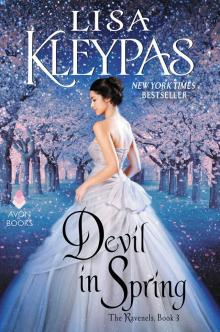 Devil in Spring
Devil in Spring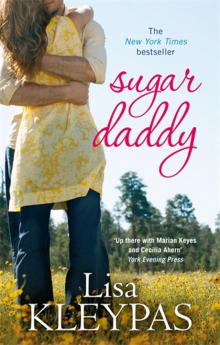 Sugar Daddy
Sugar Daddy Devil in Winter
Devil in Winter Dreaming of You
Dreaming of You Christmas Eve at Friday Harbor
Christmas Eve at Friday Harbor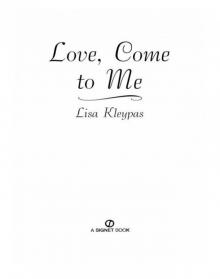 Love, Come to Me
Love, Come to Me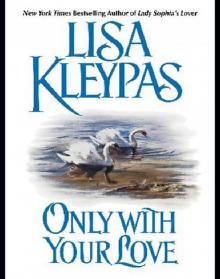 Only With Your Love
Only With Your Love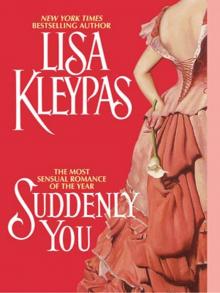 Suddenly You
Suddenly You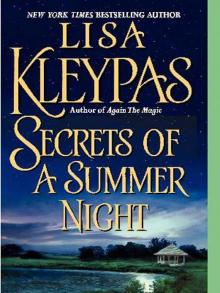 Secrets of a Summer Night
Secrets of a Summer Night Cold-Hearted Rake
Cold-Hearted Rake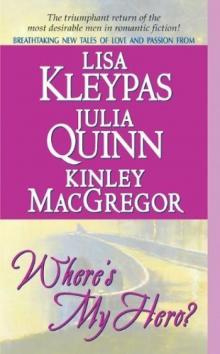 Where's My Hero?
Where's My Hero? Gifts of Love
Gifts of Love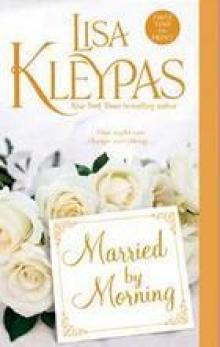 Married by Morning
Married by Morning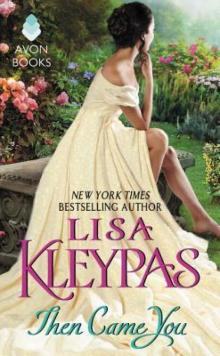 Then Came You
Then Came You Wish List
Wish List Where Dreams Begin
Where Dreams Begin A Historical Christmas Present
A Historical Christmas Present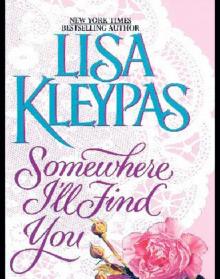 Somewhere I'll Find You
Somewhere I'll Find You Scandal in Spring
Scandal in Spring Someone to Watch Over Me
Someone to Watch Over Me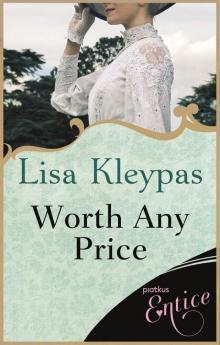 Worth Any Price
Worth Any Price Prince of Dreams
Prince of Dreams It Happened One Autumn
It Happened One Autumn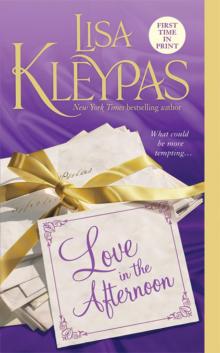 Love in the Afternoon
Love in the Afternoon Devil's Daughter
Devil's Daughter A Wallflower Christmas
A Wallflower Christmas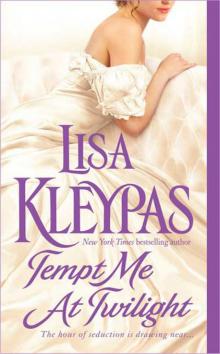 Tempt Me at Twilight
Tempt Me at Twilight Brown-Eyed Girl
Brown-Eyed Girl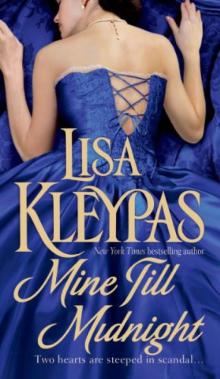 Mine Till Midnight
Mine Till Midnight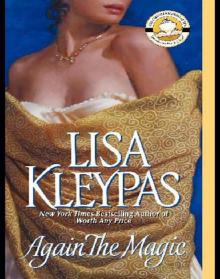 Again the Magic
Again the Magic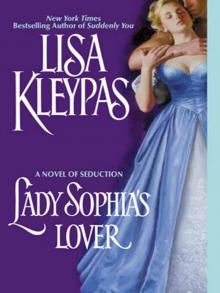 Lady Sophia's Lover
Lady Sophia's Lover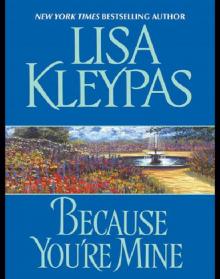 Because You're Mine
Because You're Mine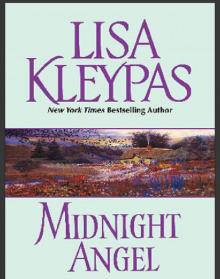 Midnight Angel
Midnight Angel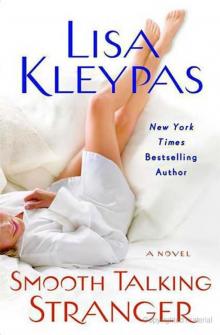 Smooth-Talking Stranger
Smooth-Talking Stranger Blue-Eyed Devil
Blue-Eyed Devil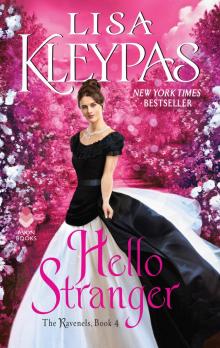 Hello Stranger
Hello Stranger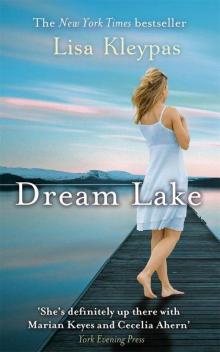 Dream Lake
Dream Lake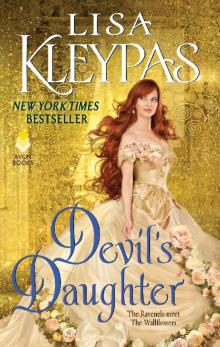 Devil's Daughter: The Ravenels Meet the Wallflowers
Devil's Daughter: The Ravenels Meet the Wallflowers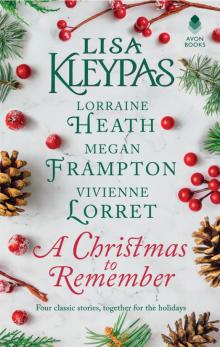 A Christmas to Remember
A Christmas to Remember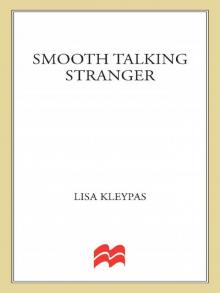 Smooth Talking Stranger
Smooth Talking Stranger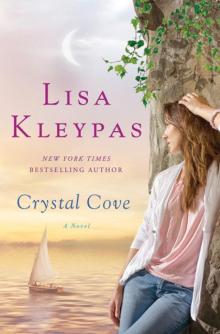 Crystal Cove
Crystal Cove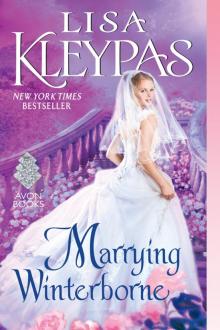 Marrying Winterborne
Marrying Winterborne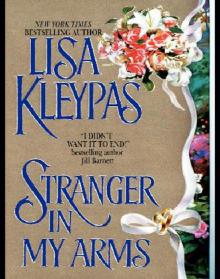 Stranger in My Arms
Stranger in My Arms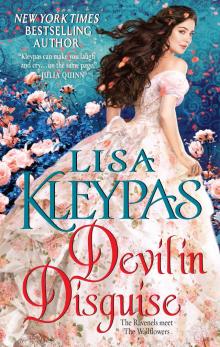 Devil in Disguise
Devil in Disguise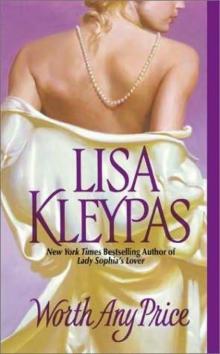 Worth Any Price bsr-3
Worth Any Price bsr-3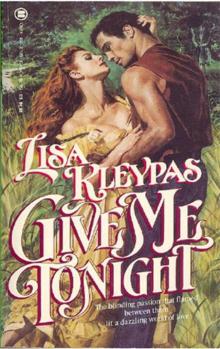 Give Me Tonight
Give Me Tonight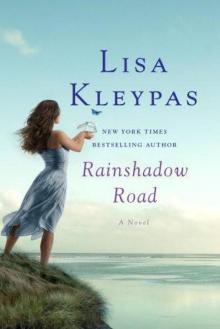 Rainshadow Road fh-2
Rainshadow Road fh-2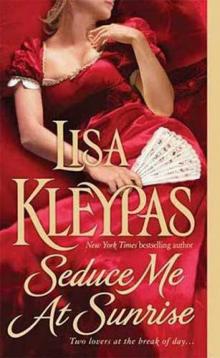 Seduce Me At Sunrise
Seduce Me At Sunrise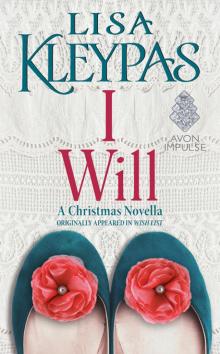 I Will
I Will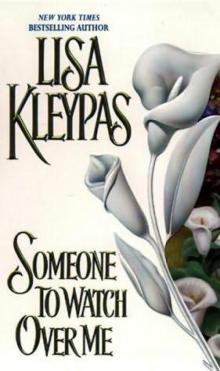 Someone to Watch Over Me bsr-1
Someone to Watch Over Me bsr-1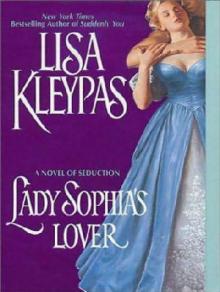 Lady Sophias Lover bsr-2
Lady Sophias Lover bsr-2 A Hathaway Wedding
A Hathaway Wedding A Hathaway Wedding (Hathaways Bk2.5)
A Hathaway Wedding (Hathaways Bk2.5) Worth Any Price - Bow Street 3
Worth Any Price - Bow Street 3 Christmas with Holly
Christmas with Holly